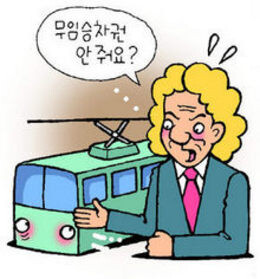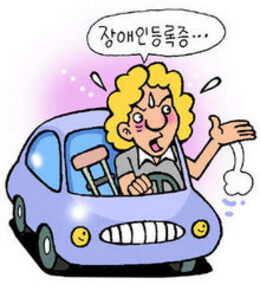hankyoreh
Links to other country sites 다른 나라 사이트 링크
Even born in Korea,‘foreigners’ feel sting of discrimination

Despite many articles written on the issue, discrimination against foreigners in Korean society is in no way limited to migrant workers. According to a recent publication on the topic, discrimination is felt by every demographic of foreign resident in Korea, from Chinese females to white males. The Hope Institute, a civic organization, on May 30 filed a complaint to the national human rights body about discrimination against foreigners after surveying foreign residents in Korea.
Paul Segal is an 81-year-old American, but he seems like a perfect Korean citizen. Having taught English literature at a Korean university for 48 years, his command of Korean is strong. He pays his taxes regularly. However, whenever he rides the subway, he feels the sense that he does not fully belong. He is exempted from the free pass which is issued to persons aged 65 or over because he is not a Korean: the word "elderly" in Korean apparently somehow includes nationality as well as age. "In the United States, old foreigners, even there on a quick tourist trip, can receive discounts when using the subway," he said.

Wang Eun-mi is an ethnically Chinese Korean who was born in South Korea. The 35-year-old woman returned to Korea last month after studying in Japan for eight years. During the period she was gone, Korea had become an Internet powerhouse. She figured she could freely use the Internet that was so widespread in her native country. However, she was mistaken in her thinking. People who want to watch TV programs online or to shop on Internet shopping malls must enter their resident registration number, not given to ’foreigners.’ Non-Koreans must go through complicated procedures to get a proxy registration number.
Wang complained, "I struggled with the computer for more than an hour trying to subscribe to the Web site of a Korean broadcasting company. Many ethnic Chinese residents like me just use the resident registration numbers of their Korean friends," she added.

In another issue, disabled foreigners can receive a sticker for their car from the government in order to park in disabled-only parking spaces but, illogically, they are subject to fines even with the sticker on their car because they do not have the official card that identifies them as disabled, which is also issued by the goverment. Disabled drivers must show this card to parking lot managers upon request.
According to the Ministry of Health and Welfare, the disabled registration cards are issued only to those of Korean nationality.
The Hope Institute presented on May 30 a petition to the National Human Rights Commission of Korea and urged the commission to investigate these cases, along with others.
Editorial・opinion
![[Column] Has Korea, too, crossed the Rubicon on China? [Column] Has Korea, too, crossed the Rubicon on China?](https://flexible.img.hani.co.kr/flexible/normal/500/300/imgdb/original/2024/0419/9317135153409185.jpg) [Column] Has Korea, too, crossed the Rubicon on China?
[Column] Has Korea, too, crossed the Rubicon on China?![[Correspondent’s column] In Japan’s alliance with US, echoes of its past alliances with UK [Correspondent’s column] In Japan’s alliance with US, echoes of its past alliances with UK](https://flexible.img.hani.co.kr/flexible/normal/500/300/imgdb/original/2024/0419/2317135166563519.jpg) [Correspondent’s column] In Japan’s alliance with US, echoes of its past alliances with UK
[Correspondent’s column] In Japan’s alliance with US, echoes of its past alliances with UK- [Editorial] Does Yoon think the Korean public is wrong?
- [Editorial] As it bolsters its alliance with US, Japan must be accountable for past
- [Guest essay] Amending the Constitution is Yoon’s key to leaving office in public’s good graces
- [Editorial] 10 years on, lessons of Sewol tragedy must never be forgotten
- [Column] A death blow to Korea’s prosecutor politics
- [Correspondent’s column] The US and the end of Japanese pacifism
- [Guest essay] How Korea turned its trainee doctors into monsters
- [Guest essay] As someone who helped forge Seoul-Moscow ties, their status today troubles me
Most viewed articles
- 1[Column] The clock is ticking for Korea’s first lady
- 2Hong Se-hwa, voice for tolerance whose memoir of exile touched a chord, dies at 76
- 3After 2 months of delayed, denied medical care, Koreans worry worst may be yet to come
- 4[Column] Has Korea, too, crossed the Rubicon on China?
- 5[Correspondent’s column] In Japan’s alliance with US, echoes of its past alliances with UK
- 6US overtakes China as Korea’s top export market, prompting trade sanction jitters
- 7Samsung barricades office as unionized workers strike for better conditions
- 8All eyes on Xiaomi after it pulls off EV that Apple couldn’t
- 9More South Koreans, particularly the young, are leaving their religions
- 10John Linton, descendant of US missionaries and naturalized Korean citizen, to lead PPP’s reform effo